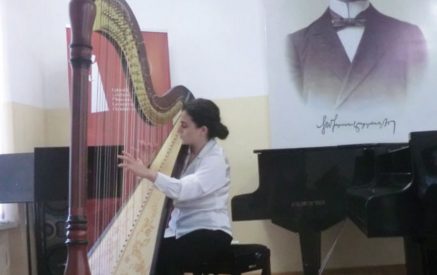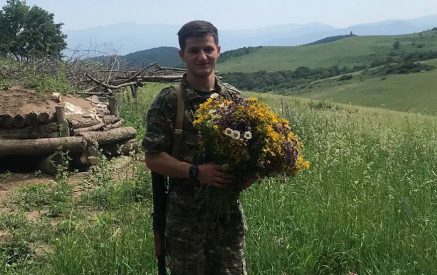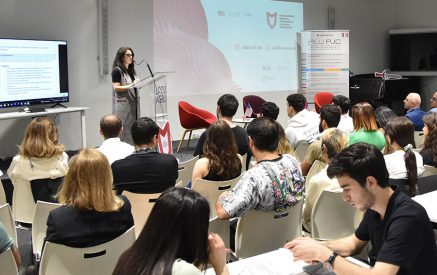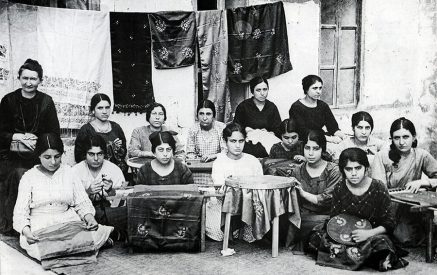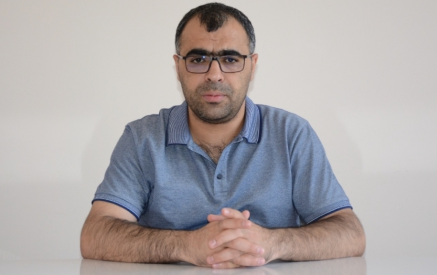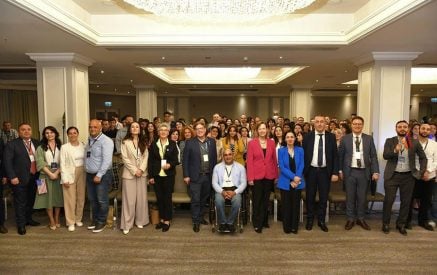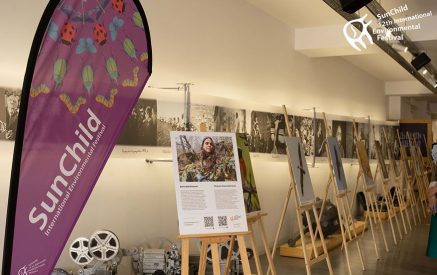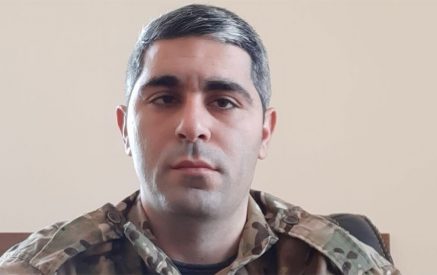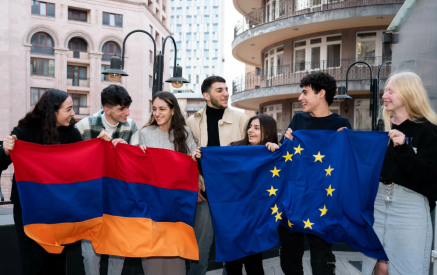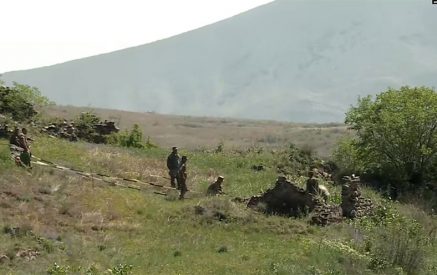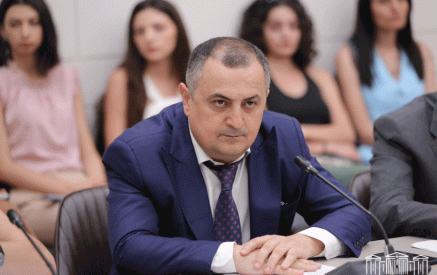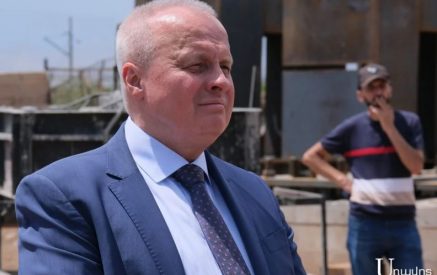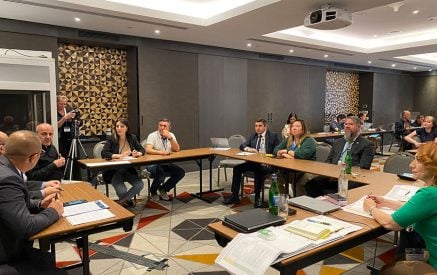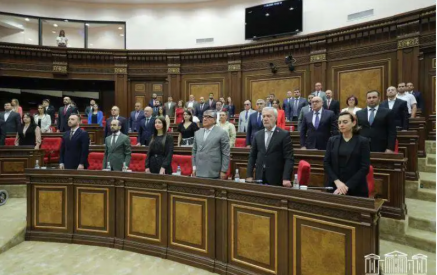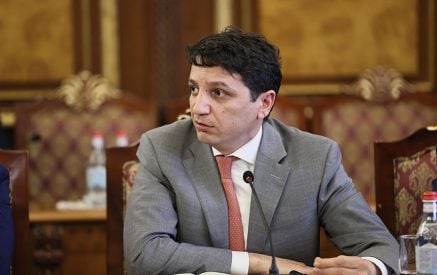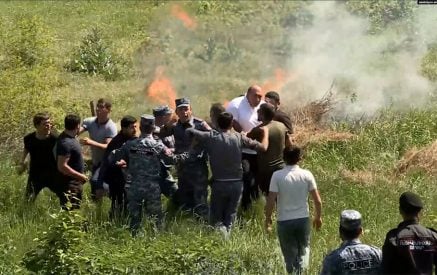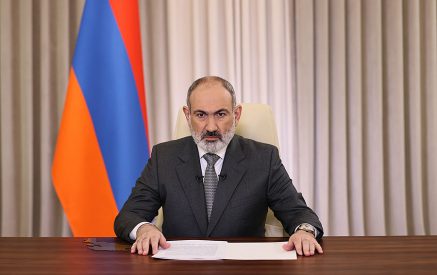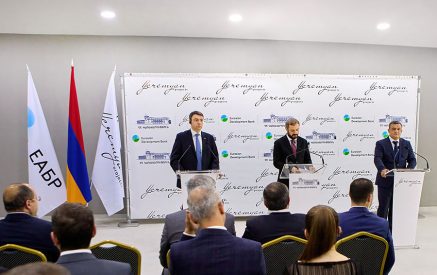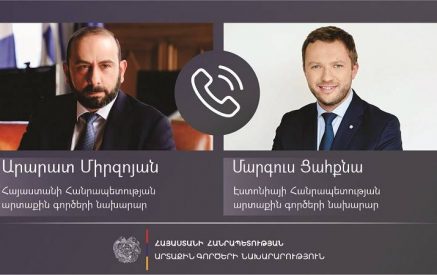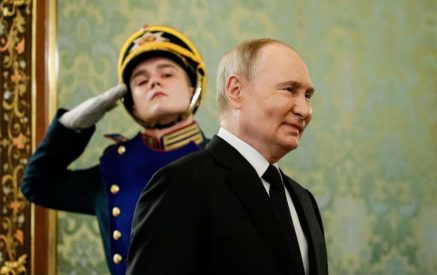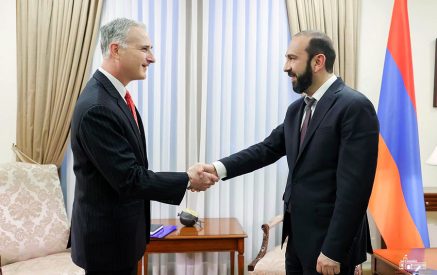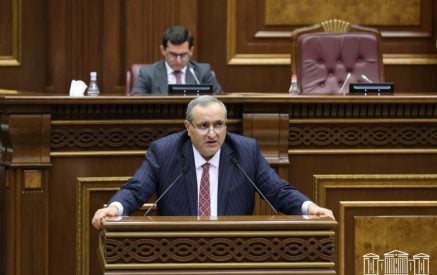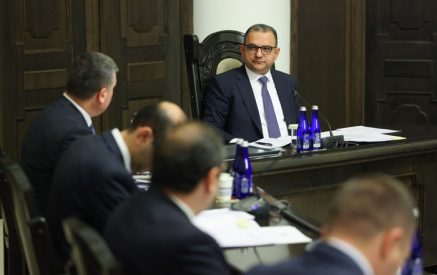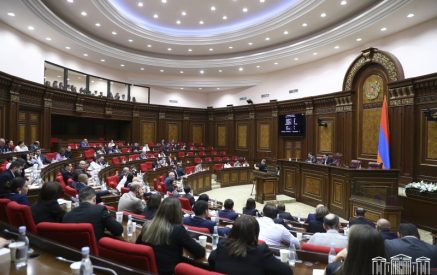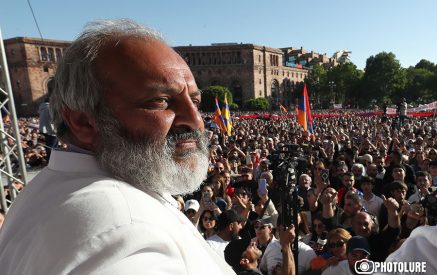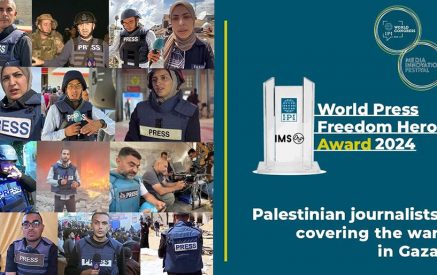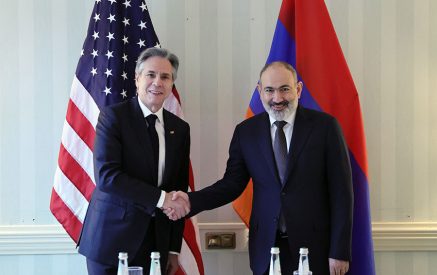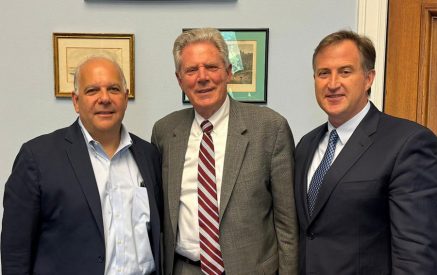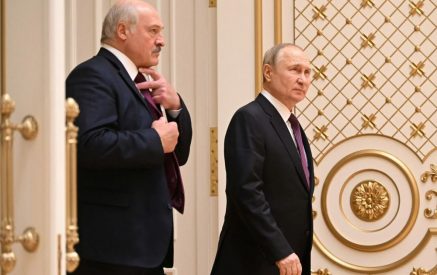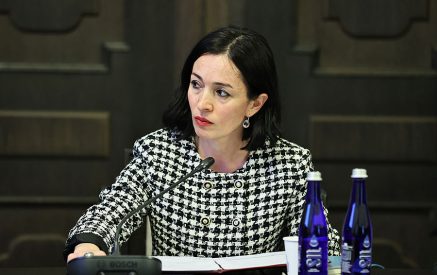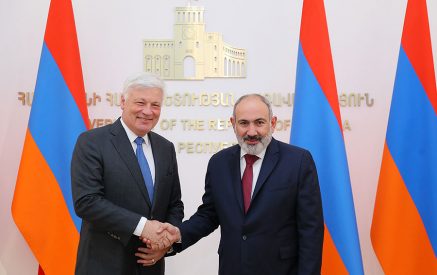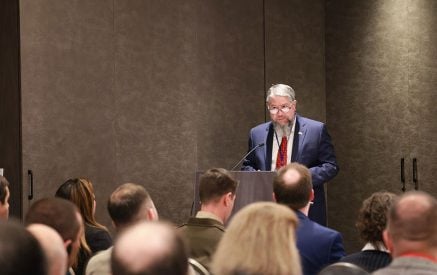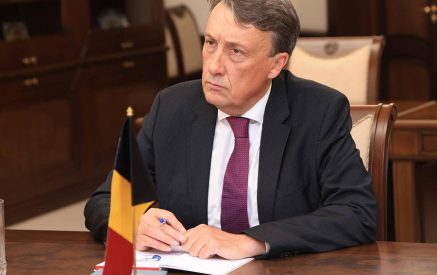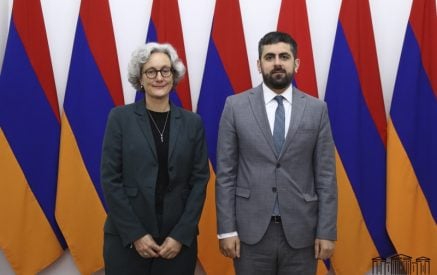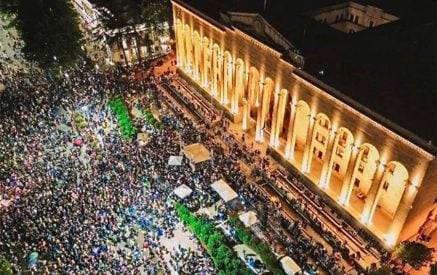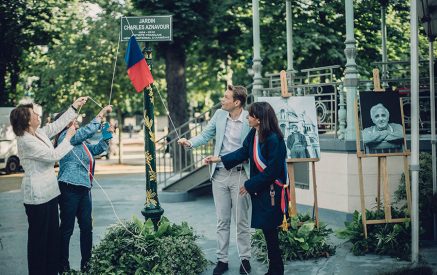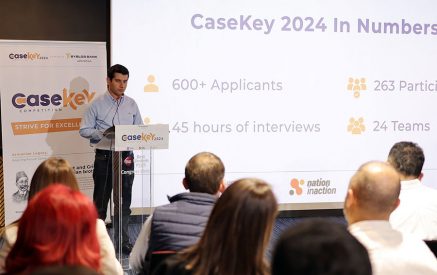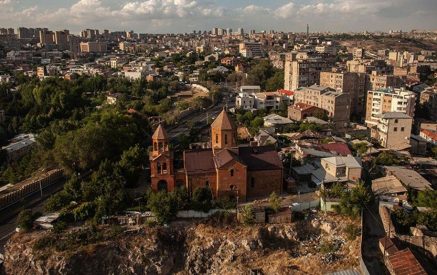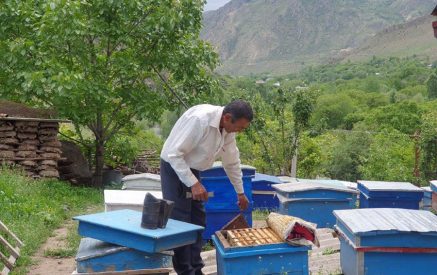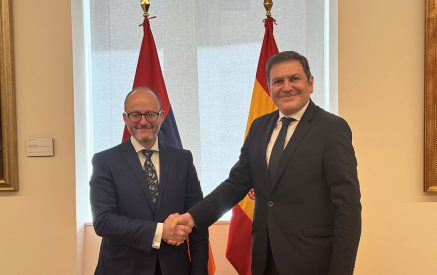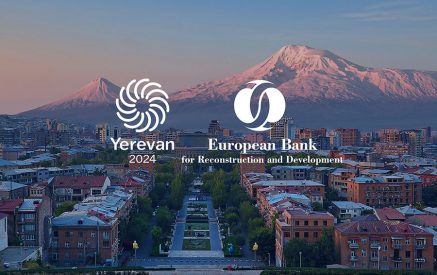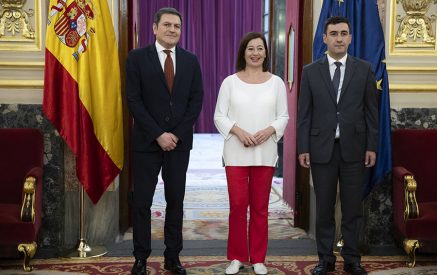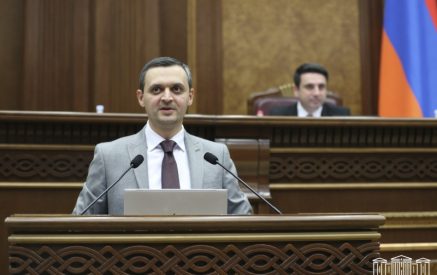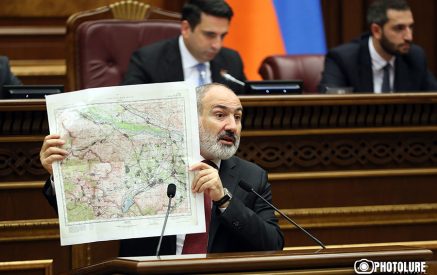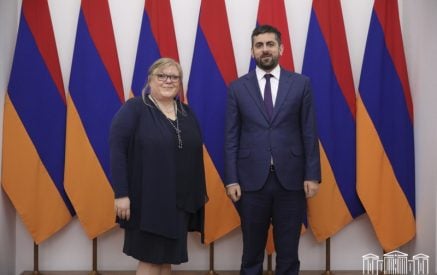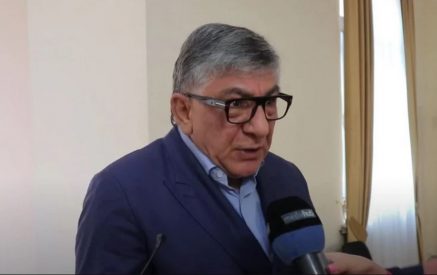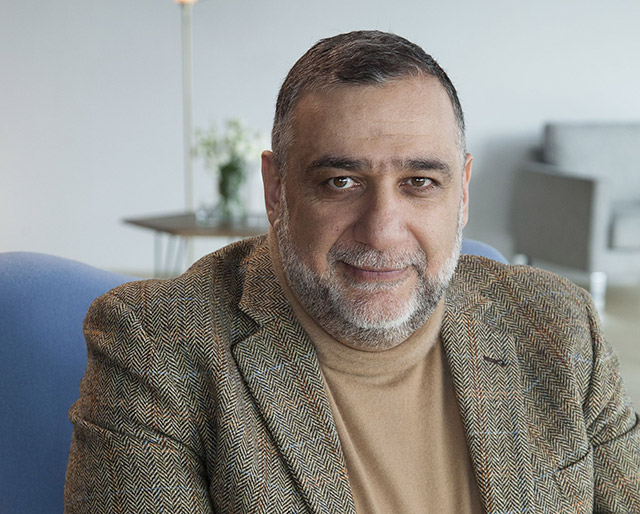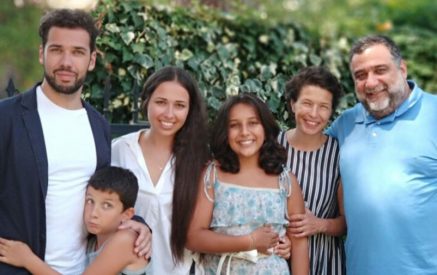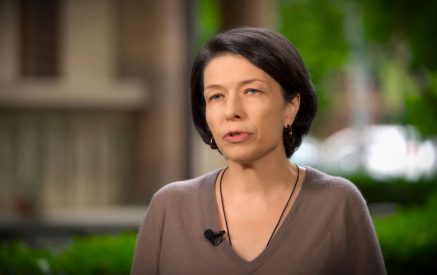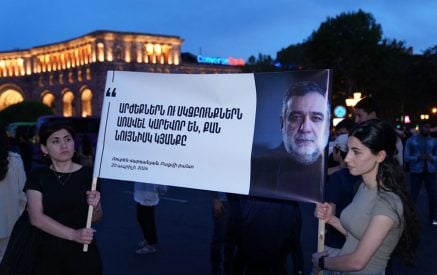Ruben Vardanyan, evolutionary visionary, Co-founder of the Aurora Humanitarian Initiative, UWC Dilijan, FAST, International School of Leadership and Professional Development “Matena” and other projects.
Part-5
Read the beginning here
- In developing an awareness of our identity we must overcome the victim nation complex and change our self-perception, regaining a sense of dignity and calm pride. No one can erase the glorious chapters of the Armenian past, but one cannot but admit that our present is not exactly something to be proud of. We soon need to create new symbols of identity that would encourage Armenians living in Armenia and in the diasporan communities around the world to come closer and make them want to associate with a nation that has spurned victimhood and has instead chosen an active role in today’s world.
It is necessary to create new symbols of identity that would make Armenians want to associate with the nation.
Read also
Along with love for their native land and the fear of losing it, healthy ambition, pride in their achievements, in the success of their children, in their city, country, and nation—that is, in everything that can spark respect for those around them—should become a powerful motivator for Armenians. Such pride has nothing to do with vanity, elevating oneself at the expense of humiliating others.

On behalf of the survivors of the Armenian Genocide and in gratitude to their saviors: 2021 Aurora Prize Laureate Julienne Lusenge, a Congolese human rights defender, at the ceremony held on the San Lazzaro Island, Venice, Italy. Photo credit: The Aurora Humanitarian Initiative ©
Another important aspect is that, for the first time in our history, we began to live in a monoethnic country, where the main ethnic group comprises about 98% of the population. Armenians have always been part of large empires, and the monoethnicity of today’s Armenia is a serious challenge for the people who have lived for centuries at the intersection of civilizations and cultures. We have lost the habit of living side by side with “others,” have become arrogant, and, paradoxically, are prone to discriminating against minorities. Are we ready to accept people of a different ethnicity, religious creed, sexual orientation, etc. in our homeland? How can we preserve the traditional pillars of our identity, such as the Christian faith and the church, family and the Armenian language, while preventing them from conservation and stagnation? How do we find a fine line between permissiveness and intolerance, without slipping into the extremes? These issues are vital for open discussion in a monoethnic closed society, which is oversensitive to anything that regards national identity.
Many of our problems are rooted in our minds. However, changing consciousness is a daunting task. It takes time, incredible effort, will, and determination. Besides, one needs patience for people to believe that change for the better is a possibility. Sometimes politics contributes to this process, other times politics and the introduction of regulatory measures are not enough, and here is where consistency in the implementation of adopted laws and regulations comes into play, and most importantly, a change in the understanding of what is acceptable in our society and what is not.

Are we ready to live side by side with “others?” When opening the international school in Dilijan, we thought it essential to ensure interaction between students and residents, especially young residents of the town.
Photo credit: UWC Dilijan ©
- There are two ways social advances can be made: either aggression and conflict caused by the struggle for limited resources and benefits or empathy and interaction toward the joint enhancement of these benefits. The choice of the path is obvious to me, and, therefore, partnership is at the heart of all my projects. In my opinion, for a nation to thrive, wherever its representatives live, several elements must unite: an increased income, a harmonious living environment, an advanced cultural state, and a reinforced identity. None of these should prevail, artificially bloated at the expense of others: prosperity is impossible without the harmonious balance of these elements. A shift from preservation mode to prosperity mode is inconceivable without the revival of the nation based on sufficient consensus regarding the ways of its development.
- Collective responsibility of the most active public circles for the future of Armenia and the Armenian people and participation in governing the country. One should not expect that the leader of the country and their team will fix the entire minefield of problems overnight. This cannot be done by a small group of people alone, even if it consists of seasoned professionals. We must not absolve ourselves of responsibility for the country and the nation—this is our common task, and I would like to emphasize this. It is very much possible to create conditions where all caring people—whether they are Armenians or friends of Armenia, regardless of where they live—could be engaged in our reforms. This requires significant professional and financial resources, the creation of mechanisms that ensure unprecedented transparency, and an honest systemic dialogue between the government and society.
Even the most experienced professionals cannot fix the entire minefield of problems alone.
As I have already mentioned, we missed the moment when, in the wake of the general emotional upsurge, it was possible to change the paradigm of Armenia’s development. Now it is necessary that the fear for its fate and the fate of the Armenian people be channeled into fruitful networking to fulfill a shared dream.
- Balance between hierarchies and networks. In the past 200 years, amid the struggle for access to resources, the structure of society has been dominated by institutions built around the principle of hierarchy. However, in the 21st century, when an individual and their talent become the main resource, the ratio of hierarchies and networks has started to change. Technological platforms that have led to the creation of a multitude of social media are already beginning to bring together humanity. Digital communication is increasingly used not only for information exchange but also for the joint involvement of many people in solving problems, which is difficult for traditional institutions, from funding cultural and environmental projects to jointly discussing key political documents.
I hope that Armenia will discover a unique formula for interaction between the state, institutions, and the global Diaspora network.
While trust in traditional institutions (government, businesses, NGOs, and the media) has hit a historical low, trust in people we know personally, at least as members of our networks, is on the rise and will continue to be that way. This, of course, does not mean to say that networks will completely replace hierarchies. Rather, one can expect parallel processes: the reform of hierarchical structures and the simultaneous formation of various forms of network interaction. I am convinced that the right balance of hierarchies and networks, as well as public-private partnership, which enables you to properly use the institutional power of the state along with the flexibility and resources of communities, will lead us to effective solutions to both local and global challenges. Trust should be the basis for effective network relationships between people, as well as between state institutions and society. I hope that Armenia will be able to set a unique example for the whole world, one of a country that has weathered its problems thanks to the discovered formula of interaction between the state, institutions, and the global Diaspora network.
Below is a number of principles that, in my opinion, should underlie the building of a new society. International practice shows that following these principles empowers you to successfully manage groups of people united by a shared goal, be it a commercial company, a team implementing a large-scale development project, or even a state:
- Ensuring transparency, meritocratic principles, professionalism, competence, and uniform rules for all, both in relations between public structures and institutions and within them, and ultimately achieving the maximum expansion of the circle of social trust. Of course, there are no rules without exceptions, but there cannot be many of those, and their presence (or absence) must be clearly and reasonably justified.
- This principle was perfectly phrased by the architect of Singapore’s economic miracle, Lee Kuan Yew, whose political activity is an example of successful building the relations between the government and society. “Three things are the worst,” he wrote. “The first is hesitations where you seek to please each and everyone. The second is unfinished projects. Even if you were wrong, finish what you have started. The third is non-observance of the rulebook. Once the rules are announced, they may not be applied selectively or change along the way.”
- An institutional framework for decision-making and interaction. We are talking about the effectively working civil society institutions that control the actions of the government and the country’s leader, preventing them from slipping into a “manual control mode” of the government.
- Launch of mechanisms for regular development assessments. As you know, what cannot be measured, cannot be managed effectively. Without the cohesive work of independent think tanks, which should constantly monitor social dynamics, analyze data, evaluate how decisions are implemented, and offer high-quality expert assessments, a systemic dialogue between the government and society is unfeasible. (So far, initiatives in this area come from the private sector: to date, the Armenia-2041 Foundation has conducted five public opinion polls in order to identify the reaction of Armenians to the current situation, actions, and decisions of the authorities, as well as to identify the most pressing problems. One of the polls found that among the most concerning issues for residents of Yerevan, Gyumri, and Dilijan, second only to security, is the soaring number of stray dogs in said cities. To solve this problem, we started developing a special program.)
- Introduction of a system of checks and balances to fledgling institutions. It is necessary to work out the rules of management and decision-making in advance, with an emphasis on ensuring that the created structures do not degenerate, do not devolve over time into a traditional hierarchy, into uncontrolled bureaucratic juggernauts.
- Holistic approach to development: importantly, all the initiatives being implemented should be interconnected and should gradually add up to a streamlined system of change.

The bridge between the past and the future: a stone from the wall of the long-destroyed church in Dilijan is laid in the foundation of a new temple.
Photo credit: IDeA ©
- Scalability and vision of the grand scheme of things: we need to focus on strategic anchor projects that set off a range of new development initiatives that collectively change reality.
- Interest in what is happening outside the country, study and consistent implementation of best global practices.
- Promoting lifelong learning opportunities for all, as stated in one of the 17 UN Sustainable Development Goals (SDGs).
- Admitting that our today’s problems can only be solved collectively and developing skills for solving complex problems in a team.
- Respect for people and rejection of archaic models of governance and interaction with citizens in favor of new relations, akin to a partnership.
- Establishing feedback mechanisms designed both to ensure accountability and efficiency of state structures and to involve as many citizens as possible in the processes of state and nation-building.
- Engagement. Let me quote Lee Kuan Yew again: “It is impossible to achieve something if you do not love the subject of your pursuit and are not ready to sacrifice everything else for the sake of success.” In other words, the dream of a strong and prosperous Armenia will come true only if caring people unite around it, the ones who love their country and their people and put their well-being above all else.
To be continued


